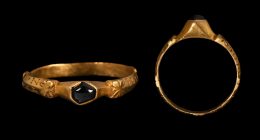CREDIT cards can be a great way to spend, but used wrongly can end up costing you thousands.
Picking the wrong card, paying too much interest and not clearing your balance in full each month can hurt your finances – not to mention your credit score.
But a properly used credit card can be a vital tool in your wallet.
It can help you earn cashback or reward points, manage your borrowing in one place, and keep tabs on your spending.
So here are five things to consider to make the most of this piece of plastic.
Get a balance transfer card
Balance transfer credit cards are a great idea if you have debt spread across a few different cards or if your interest rate is high.
These let you move the balance from other cards onto a new one, and typically you pay no interest for a set period.
This means you debt is easier to manage because it’s all in one place.
And because you’re not paying any interest on the balance, all your repayments go to clearing the amount you owe, meaning you can get debt-free more quickly.
According to MoneySavingExpert, the best cards currently available include one from Virgin Money, which charges no interest for 35 months.
It does, however, charge a 2.94% fee to move your balance – so if you move across £3,000 you’d pay £88.20.
Sainsbury’s Bank offers 0% for 21 months with no fees for moving your money.
If your credit score isn’t great, then Fluid offers 9 months interest free with a 4% balance transfer fee, and Chrome offers 6 months with a 2.9% fee.
Try a 0% credit card
Even if you’re not transferring a balance over, you can still get a card that charges zero interest.
Don’t be tempted to overspend just because you’re not being charged interest though.
Barclaycard currently has a card that charges 0% interest for up to 24 months, while Sainsbury’s Bank and M&S Bank both have 23 month deals.
If you have a poor credit score, you can still get a 0% card but the offer period will be shorter.
Capital One and Marbles both have interest-free cards charging zero interest for four months at the moment.
Consider a cashback card
Cashback credit cards get you money back on your purchases, so can be a great way to earn a little extra on your everyday spending.
Of course, the trick is to only buy things you need and not just spend on unnecessaries to earn cashback.
These cards do usually charge interest, so only get one if you can pay the balance off in full each month.
You’ll also need to check that the rewards or cashback on offer will actually benefit you.
The American Express Platinum Cashback Everyday card pays 5% cashback for the first three months up to a maximum of £100, and then it drops to 0.5%.
It charges interest of 24.5%.
The Sainsbury’s Bank Mastercard requires you to have a nectar card but gets you an introductory bonus of 8,000 nectar points if you spend £400 or more in Sainsbury’s or Argos within the first two months.
After that you’ll earn two points per £1 spent at these stores, and one point per £5 spent elsewhere.
Meanwhile, Chase Bank Mastercard is a new entrant to the market, paying 1% cashback on all purchases for the first 12 months.
Pay your balance in full
Now you’ve got the best credit card for your needs, you want to make sure you’re using it correctly.
The best strategy is to set up a direct debit from your bank account which clears the full balance of your credit card every month.
This way you won’t be charged interest, which can quickly rack up.
If you can’t afford to clear your balance, then try to pay off as much as you can without impacting the rest of your finances.
If you only make the minimum repayment each month, it could take years to clear the balance and you’ll pay hundreds – or even thousands – in interest.
A repayment calculator can help you work out how much you’ll pay in interest and how quickly you can clear your balance.
Know the risks
Not using a credit card effectively, can wreak havoc on your finances and your credit score.
If you don’t keep up with repayments or default on your debt, you are likely to get a black mark on your credit record, which could affect your ability to get a credit card, loan or mortgage in the future.
It’s important not to let yourself get sucked into overspending just because you’re earning points or cashback – spend as usual and always clear the full balance as soon as possible.
And don’t bank on being approved for a card or getting the 0% deal you’d hoped for.
Card providers only have to give the advertised rate to 51% of applicants, so you could end up paying more interest than you bargained for.
If you’ve got a poor credit record, you’re less likely to get the best rates
And if you are looking for a new credit card, don’t apply for lots at once.
Applications show up on your credit record and if you make several at once it can be a red flag to lenders, who may think you look desperate for the money.
We pay for your stories!
Do you have a story for The Sun Money team?










